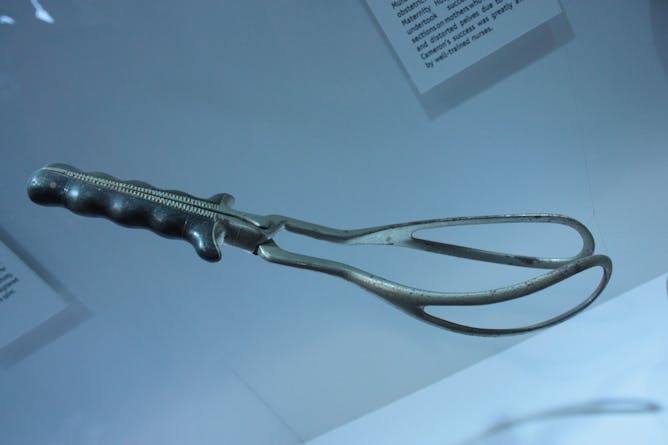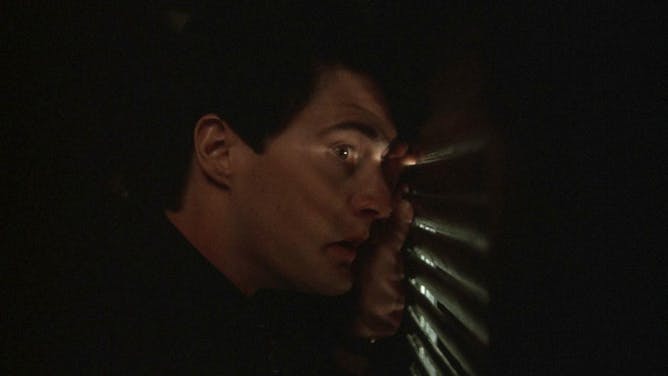
James Young Simpson’s Caesarian forceps, Hunterian Museum, Glasgow.
Stephencdickson/Wikipedia
Neel Shah, Harvard Medical School
Childbirth used to be a terrifying ordeal. But women were surrounded by others – mothers, aunts, sisters – who brought love and experience. But midway through the 19th century, this changed.
|

Kyle MacLachlan as Jeffrey Beaumont in David Lynch’s cult classic film ‘Blue Velvet.’
De Laurentiis Entertainment Group
Billy J. Stratton, University of Denver
The famous director is receiving an honorary Oscar, and the timing couldn't be more appropriate.
|

Soy-based Impossible Whoppers went on sale at Burger King stores across the US in August 2019.
AP Photo/Ben Margot
Sheril Kirshenbaum, Michigan State University; Douglas Buhler, Michigan State University
Americans eat more meat on average than citizens of any other nation, but new survey findings show that plant-based meat products are winning fans across the US.
|
|
-
Erle C. Ellis, University of Maryland, Baltimore County; James Watson, The University of Queensland
To save what’s left of nature on this increasingly human planet, conservation needs to become a top priority around the world, from the wildest of wildlands to the densest of cities.
-
Hollee S. Temple, West Virginia University; John Temple, West Virginia University
The popular perception of right-wing patriot militia members is that they are racist, violent and crazy. The authors of a new book about them say that's not the whole story.
-
Stephanie Spera, University of Richmond
To untangle the relationship between climate change, fall foliage and national park visitors, researchers are asking tourists to check their old photo albums for snapshots that could hold valuable data.
|
|